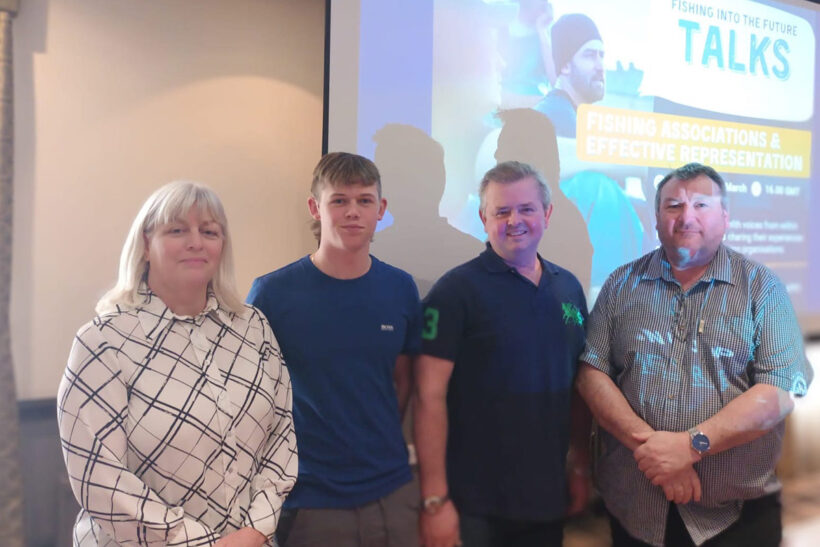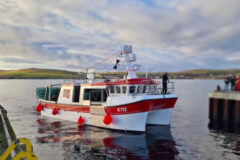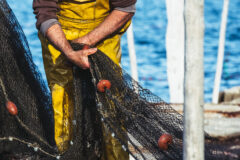Following the success of the previous Fisheries Resource Programme (F-REP) event in November, shellfishermen from across England and Wales met last week near York for a four-day workshop designed to support and equip fishermen to participate in genuine co- management of their fisheries.
It was similar in format to the first event. Working fishermen were again the priority at an event that also brought in scientists, fisheries managers, civil servants and industry reps. An inner circle of fishermen had priority access to microphones and questions throughout the event, with non-fishermen in an outer circle in the room.
“It is vital that this is a two-way process,” FITF trustee and vice chair Adrian Bartlett said. “It’s one thing to support fishermen to respond fully to the development of the shellfish FMPs, and the various other consultations they are involved in, but we also need to see that the managers and advisors involved in this fully appreciate and understand the value that fishermen bring to the decision-making process.”
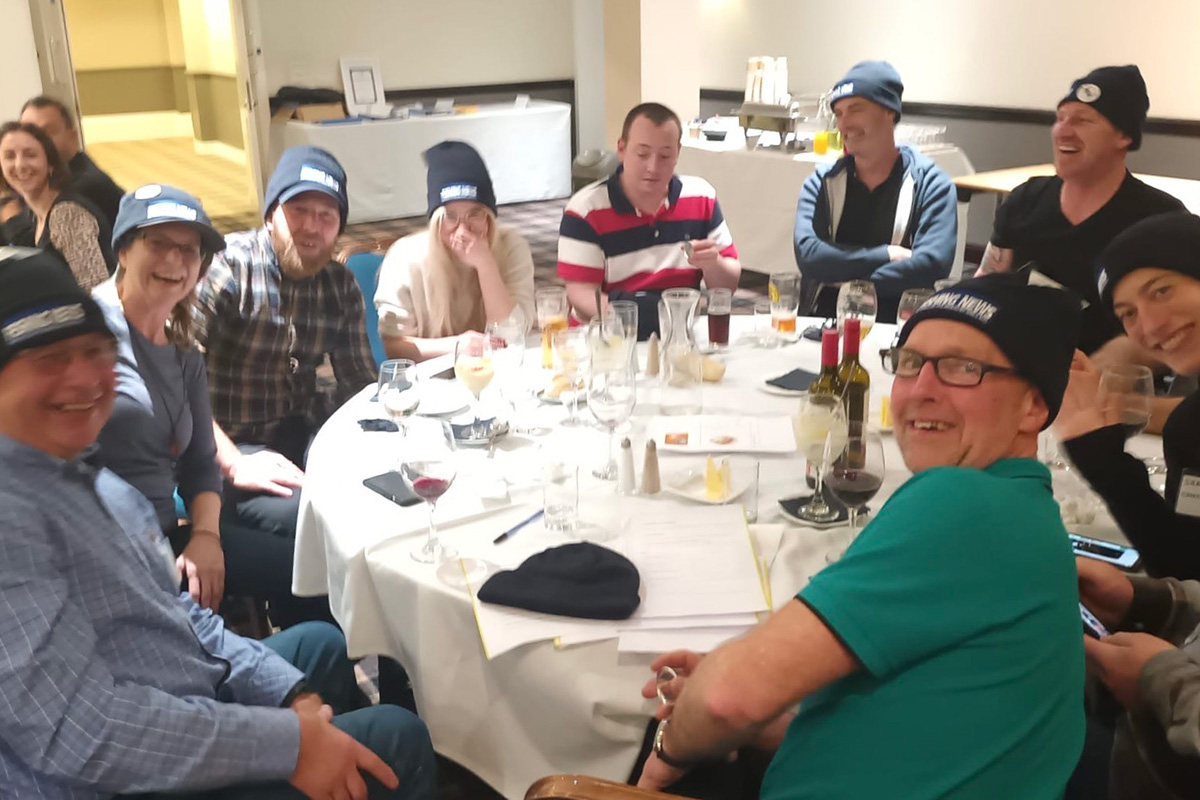
The winning team in the F-REP quiz – informal as well as more formal events are a key feature of these events, helping to build relationships between the different sectors in attendance.
“Ultimately, everyone in this room who is not a working fisherman is being paid out of the codend – co-management needs to understand and reflect this. The fishermen here have been appreciative that managers are listening to their views and learning from their experiences. FITF has an impartial role to play to support this process – we are not managers, we are just here to help improve dialogue and understanding.”
Alfie Steer, a fourth-generation fisherman from Devon, currently undertaking his fisheries apprenticeship at South Devon College, whilst also working on the family-owned crabber Superb-Us, said that the entire event had been ‘really helpful’.
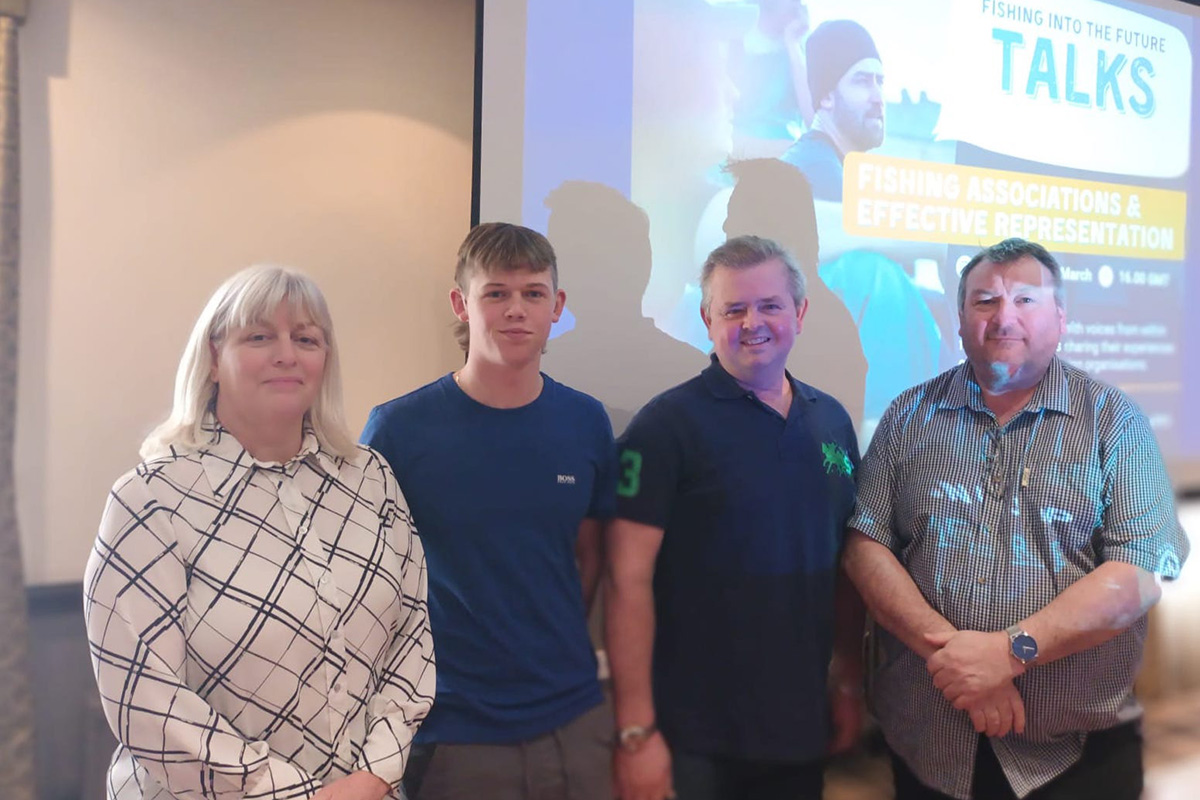
Deborah Layde, chief executive of The Seafarers’ Charity, fishermen Alfie and Alan Steer, and FITF trustee and vice chair Adrian Bartlett at the F-REP event in York last week.
Ed Hind-Ozan, a social scientist recruited to Defra as part of moves to ensure that the social objectives enshrined in the Fisheries Act are actually delivered, said: “We’re very grateful to FITF for setting up these hugely helpful workshops. This wasn’t just a learning opportunity for working fishers, it was equally valuable to fisheries managers.
“We’ll take back what we learned here, including the feedback received during the various workshop sessions, and our next step is to put into practice what we’ve learned.”
This story was taken from the latest issue of Fishing News. For more up-to-date and in-depth reports on the UK and Irish commercial fishing sector, subscribe to Fishing News here or buy the latest single issue for just £3.50 here.
Sign up to Fishing News’ FREE e-newsletter here.



